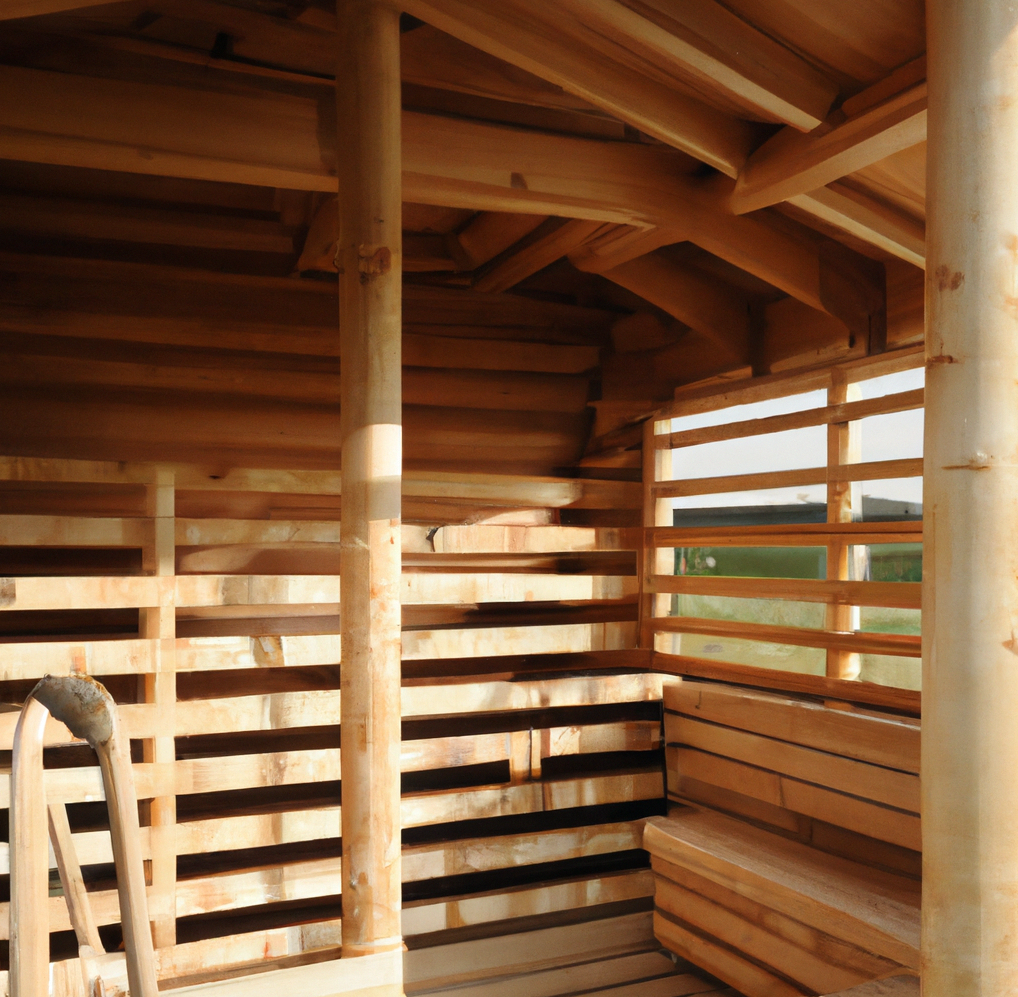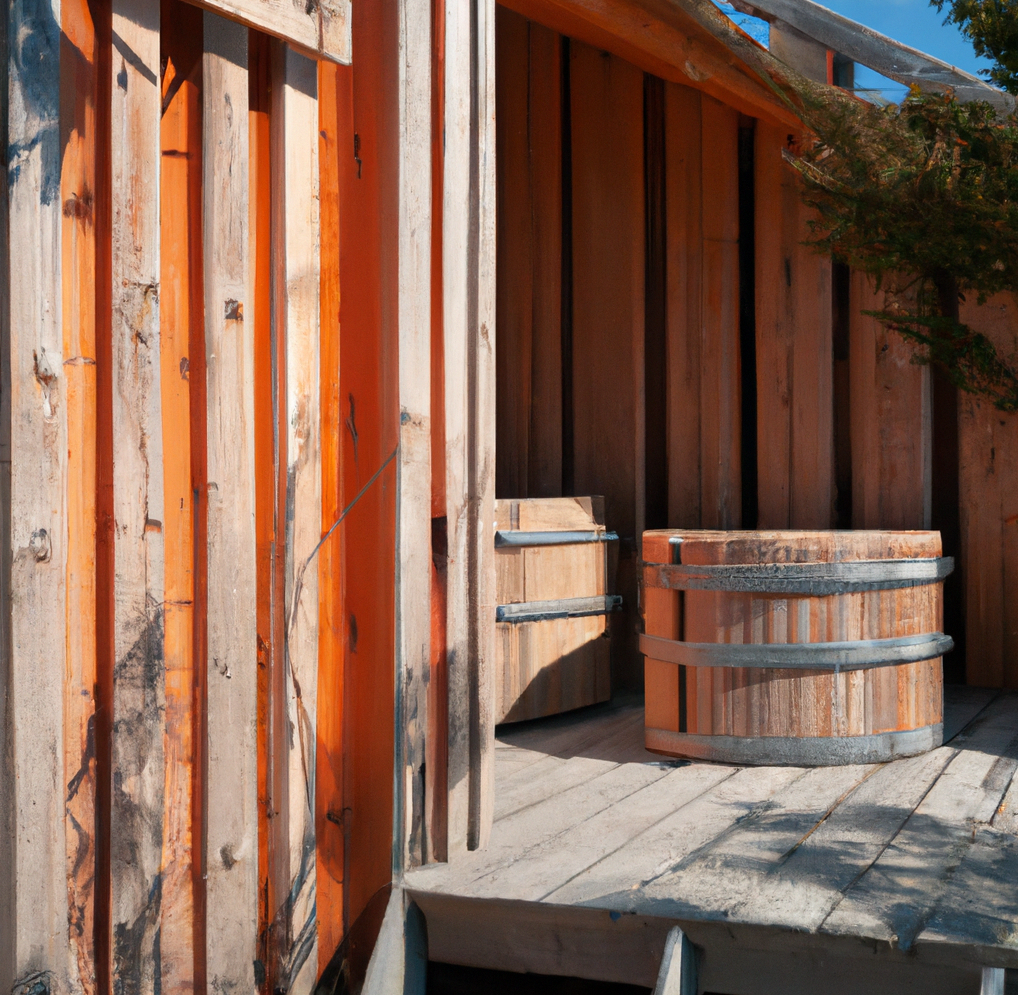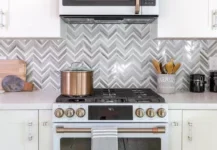[ad_1]
Renovating your home or looking to put up a new project in the backyard next to your portable bathtub? Perhaps an outdoor sauna has crossed your mind but you don’t know where to start. Here’s our guide to saunas!

Do You Want or Need Your Own Sauna?
The traditional Finnish sauna is found all over not just the country, but its variations span the globe. Maybe you’ve been looking into the different saunas that the North American Sauna Society is offering or want to put together your very own custom sauna. Whether you’re interested in an outdoor or indoor sauna, here’s what you need to know about this popular steam room.
What is a Sauna?
A sauna room or building is an enclosed space that is heated up between temperatures of 150°F (65.5°C) to 195°F (90.5°C.) Your overall experience will depend on what type of sauna you have. For example, infrared saunas are a more modern option as the infrared heaters reach high temperatures quickly while others prefer a more traditional sauna session and will opt for one that works similar to a wood-burning stove.
Indoor or Outdoor Sauna
A freestanding sauna, indoor sauna, or home sauna, is usually found in an unused basement space, spare room, or home gym. Having a sauna indoors means that you can make use of areas that you’ve always wanted to do something else with as a DIY project. Compared to a backyard sauna, you have more privacy and easy access.
However, an outdoor sauna has its benefits as well. Whether you’re putting together a DIY sauna or one from scratch, outdoor saunas generally give you more freedom. Compared to their indoor counterpart, electric and gas saunas can thrive outdoors in a bunch of different sizes. The only con of an outdoor sauna is that if you’d want to enjoy your spa-like experience, you may have to make your way through the rain or snow to get to the sauna door. Moving forward, we focus on building an outdoor sauna.
Kit or DIY Your Own Outdoor Sauna
After having decided that yes, an outdoor sauna is indeed what you’re looking for, thinking about all of the steps you need to take to build your own sauna will depend on whether you are making one from scratch or utilizing a sauna kit. A DIY sauna that comes in a kit differs in shape or design rather than how these steam rooms are heated. DIY sauna kits will have your sauna heater, door, benches, and a certain range of building materials.
However, if you make an outdoor sauna from scratch, everything from the concrete foundation to the natural Canadian hemlock wood finish is up to you. If you want your sauna heater a certain size and the sauna stove a certain material, you have no restrictions. Sauna building, from scratch, can be more expensive if you have a custom sauna door and double-paned glass. It can also get tricky if you have no experience or deep knowledge of the parts of an infrared sauna in the hot room and constantly take apart your sauna to work on it again. So, DIY sauna kits are great for all homeowners while building one from scratch requires a little more work and expertise.
How to Build Sauna: Outdoor Saunas

In order to build your own outdoor sauna, there are a few variables you need to take into consideration:
Location
Making sure you have enough room for your traditional, dry, or infrared sauna will make or break your sauna experience. Think about whether you want an insulated shed with plenty of sauna benches and wood-burning stoves to keep the vapor barrier at a certain heat. Think about where the outdoor sauna is easy to get to and if it will have a view of your house or vegetable garden. In general, an outdoor sauna should be near your actual house and have a power source for its electrical wiring.
Sauna Space, Shape, and Size
Keep in mind that a person should have about 2 feet of sauna bench space to themselves when you’re deciding how big your own sauna should be. Outdoor saunas differ in size and shape so you should choose one that you have the ability to build and the aesthetics that you prefer.
Materials
Making an outdoor sauna by yourself means that the materials you choose for the wall insulation, interior wood, wood paneling, and glass door are up to you. While the most popular wood for saunas is cedar wood, you can choose others.
Materials like Western red cedar are beneficial because of their longevity and because they can hold their own against the vapor barrier that steam creates. However, cedar can be expensive which is why natural Canadian hemlock wood may be chosen despite the fact that it has a slightly sour smell.
Heat Source and Wiring
Choosing your heat source is also an important decision to make. Are you hoping to build a dry sauna? Do you need a gas pipe installed?
An electric outdoor sauna is more budget-friendly and does not require as much maintenance as its wood-burning counterpart. On the other hand, wood-burning outdoor saunas are more traditional but will need more care and work as you tend to the hot rocks to create steam more.
Customization
Want the interior walls of your outdoor sauna a certain color? Do you want a hot tub inside the sauna? Personal saunas are meant to make you feel as comfortable and relaxed as possible. Choose an aesthetic sauna stove, opt for that standard fiberglass, and let the natural light in.
The post How to Build: Sauna appeared first on Kitchen Infinity.
[ad_2]
kitcheninfinity.com










